
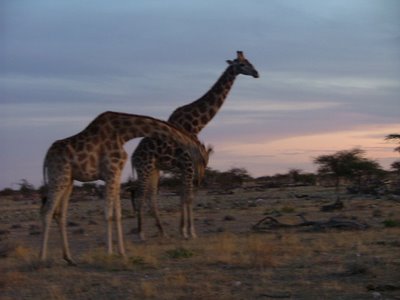
I spent three full, magical days at Etosha National Park in northern Namibia. The great gals I met on the Cape Point day trip connected myself and another independent traveler with similar goals and plans for the rest of Southern Africa, and a third traveler was met at Etosha. Fast, snap judgment decisions are made in creating travel alliances (and as pointed out in popular business literature this instinctual way of operating can be quite a bit more effective than long, drawn-out decision-making of weighing out pros and cons, etc., etc., cough-cough, etc.).
Seeing another game park in these parts helps round out my knowing and understanding of the different terrains of Africa. As compared with Kruger, Etosha is less dense with foilage and animals. At Kruger, the animals are more hidden from view because of foilage cover. At Etosha, I could see many different animals at once on the plains and in the fields. Also, different animals are more prevalent in one place versus the other, for example the impala at Kruger and the springbok at Etosha. Generally, I saw larger herds of animals at Etosha, possibly again because of the bush cover at Kruger.
In Etosha, we saw many lions! On the last of 3 evening drives before gate-closing at sundown, we were heading to the "Fairy Tale Forest" when we came upon 3 females with 4 cubs sleeping in a field. After witnessing that and stopping and at the Oliphantbaad watering hole jeweled by the white rocks reflecting the dusk, we raced back, in a manner of flying-driving, in an attempt to enter the camp before gate-closing at sundown to avoid a fine. We were making good time (and it was good fun flying through the park at dusk with the endless generosity of colors and changing light under the expansive African sky) but were intercepted by a giraffe family calmly and peacefully munching trees, wondering why the car animals and the human animals were not in their pen as all others were in camp, except us. We simply had to hold an extended photo shoot of those proud and gangly creatures in sunset sillouettes while practicing in our heads what to say at the gate for a good excuse. Excuses were ultimately unnecessary as no one cared that we were back late and simply pointed us to enter through another side gate which still sat open).
That same night, we cooked a marvelous camping-supply based meal of marinated chicken in onions, butter, red wine and fruit juice over a fire. How it turned out so delicious that the pan was wiped clean (literally) with bread we were eating, was pure luck and magic and the principles of balanced flavors (sharp, sweet, salty and sour, a hallmark of Asian cooking). That this meal was consumed under a brilliant, starry sky made everything feel more blessed.
More lions -- Later, at our camp's watering hole, we saw 1 female and 2 male lions sleeping, slumbering full-bellies up, rolling around on their backs. On the scene were also 4 black rhinos -- 2 males, 1 female and 1 baby -- and the family of giraffes we had met on the road. A short while later, we witnessed a bit of a stand off. That the rhino parents were particularly protective of the baby rhino was no surprise, but when the show-down occurred (the male rhino-lion pairs facing off individually), the lions showed deference to the irate rhinos. As they came particularly close to a fight in the final moment -- the lions sat down in response. The giraffes kept watch at a safe distance in the background. Eventually, the lions deparated, but they let us know that they are still king of the beast by roaring all night long!
p.s. Thanks to Michael for being my sous chef and for the sunset Etosha "flight" and for the pictures (including the one above)!

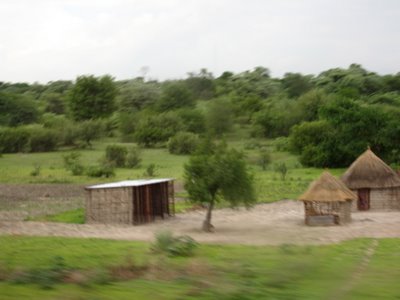
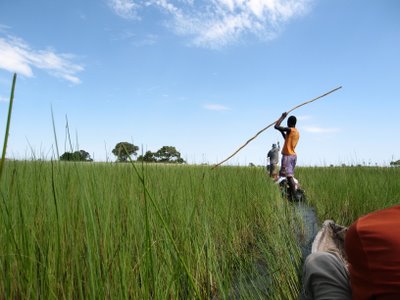 Making our way through the delta:
Making our way through the delta: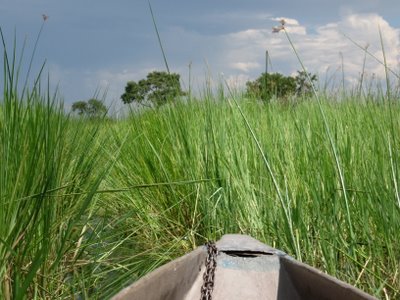 View from the delta:
View from the delta: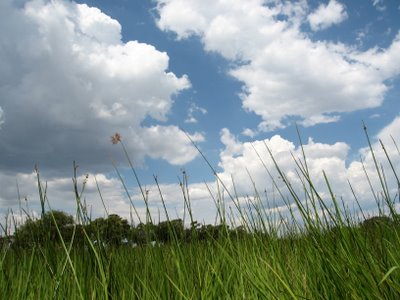

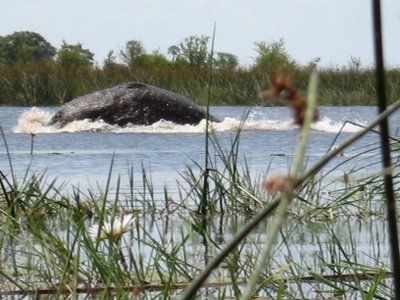

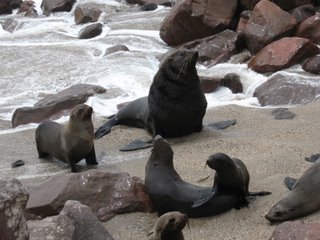

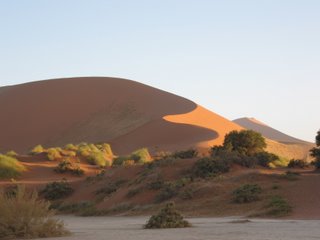






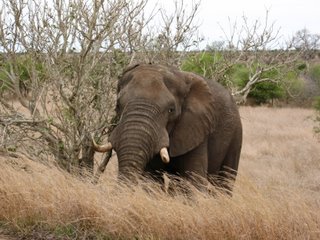
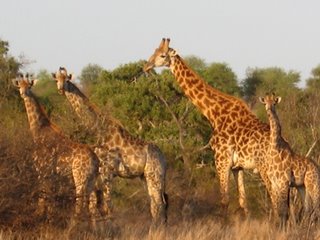
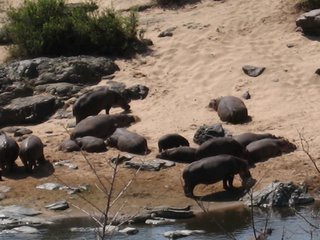
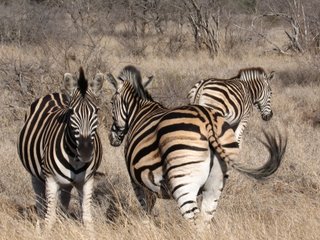


 The coast:
The coast:
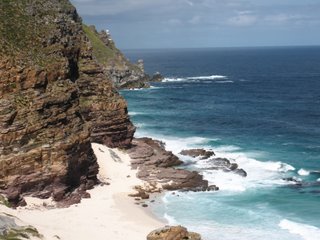 Cape Point:
Cape Point: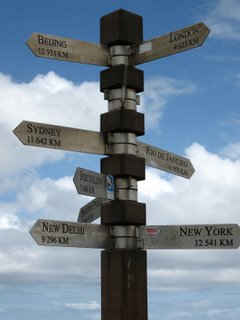

 Some great gals I met that day and I went out for a dinner at my favorite little cafe on the corner (I eat there once a day hee hee), a friendly place with healthy food, a cool vibe and mixed crowd, followed by music and dancing at Mama Africa. Yes, this is a tourist establishment, but the band played with their souls and spirits, and even the covers they did, they made all their own.
Some great gals I met that day and I went out for a dinner at my favorite little cafe on the corner (I eat there once a day hee hee), a friendly place with healthy food, a cool vibe and mixed crowd, followed by music and dancing at Mama Africa. Yes, this is a tourist establishment, but the band played with their souls and spirits, and even the covers they did, they made all their own.



 Eye-to-eye with the clouds:
Eye-to-eye with the clouds: View from the other side, Platteklip Gorge:
View from the other side, Platteklip Gorge:


